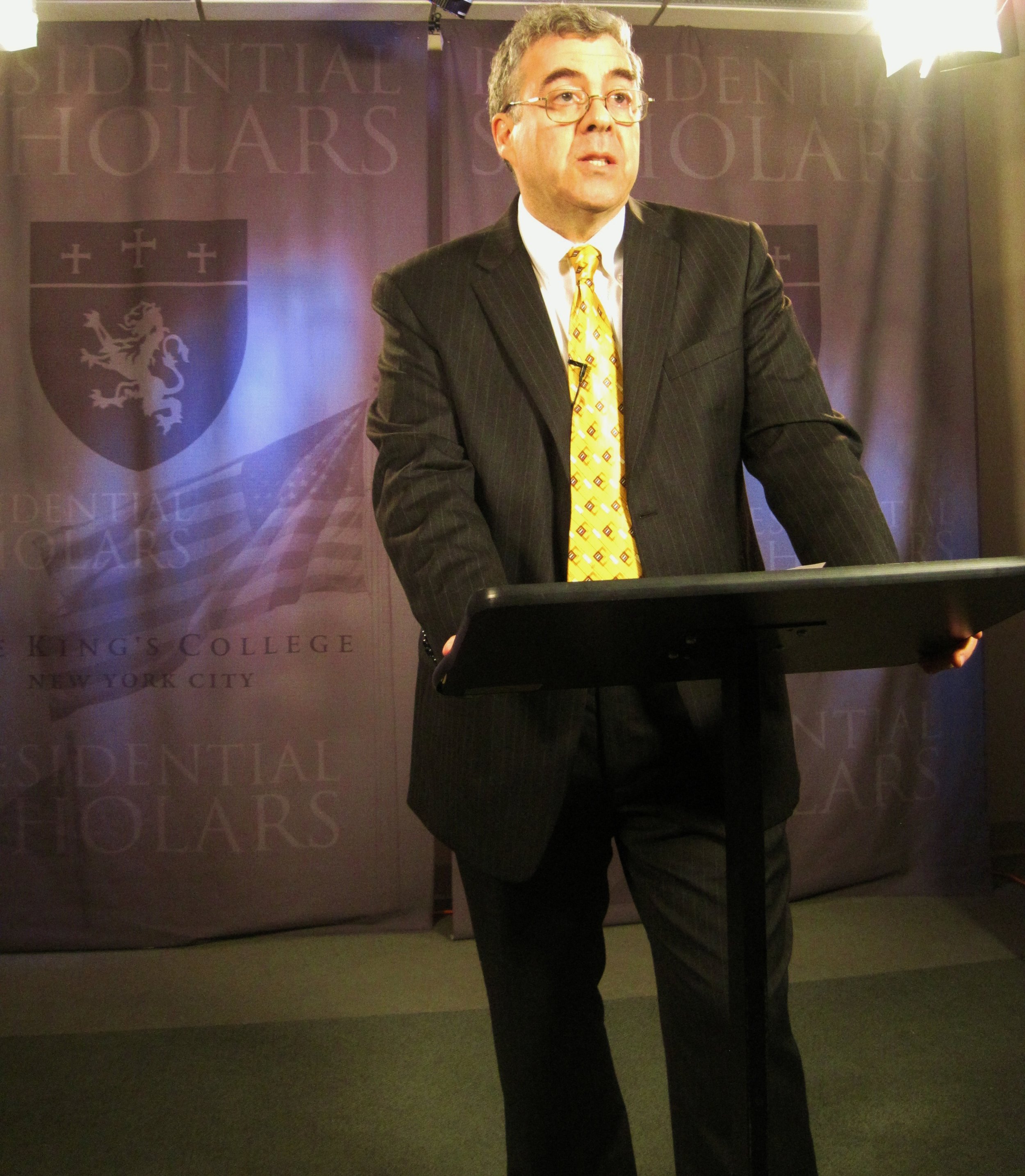Theoretical Physicist Dr. Stephen Barr Lectures on Purposeful Existence
Empire State Building, NEW YORK—Presidential Scholar Dr. Stephen Barr answered the questions “Are we meant to be here?” and “Is mankind just a fluke?” by addressing concepts in theoretical physics, particularly anthropic coincidences and multiverse theory Wednesday, Jan. 25.

While some atheist scientists, such as Richard Dawkins, believe the universe bears no sign of design, good or evil, Dr. Barr believes otherwise.
He thinks many features of nature, e.g. intelligent beings, seem arranged.
“The human race is central to the Divine Plan,” Barr said.
These seemingly-arranged features are what atheist scientists often call “anthropic coincidences.” In other words, humans could have developed as byproducts of the order of natural laws and forces.
According to a growing number of scientists, multiverse theory or M-theory also accounts for human existence in a perfectly natural way. M-theory hypothesizes a set of universes consisting of everything that exists and could possibly exist, including all of space, time, matter and energy along with their physical laws and constants.
M-theory therefore allows for the existence of man by default: in a multiverse of infinite possibilities, it is no surprise that mankind has become an actuality.
After presenting these ideas, Dr. Barr delved into quantum mechanics. “There is a strangeness about quantum mechanics,” Barr said. “For example, the strengths of so-called electron fields are not expressible in ordinary numbers but only in Grassmann numbers, which when multiplied by any number always produce zero.”
His point was that it is difficult to assign a fixed list of foundational laws to quantum mechanics. And yet, if the forces involved in quantum mechanics were no longer calibrated as they are, they could not support life.
Scientists like Bernard Carr hope to find an explanation for what they believe are these anthropic coincidences. Dr. Barr said they seem to think there must be “a unique set of laws that satisfies a unified theory of the universe.”
Dr. Barr disagrees.
“It is not necessary that the world be built according to a grand unified framework,” Barr said. In fact, laws of physics themselves or “constants of nature” may vary from place to place in the universe, especially according to M-theory.
Ultimately, Dr. Barr held that laws of nature did not have to be as they are for life to exist or to give rise to an enormously variegated multiverse. Neither must M-theory “point to a materialist world without meaning or purpose, for the universe was not made only for our benefit but also for the glory of God.”
When asked if he ever had moments when he felt atheists are right about the meaninglessness of the universe, Barr replied, “No. There are philosophical arguments that seem to have a certain force, but never anything in science.”
Concluding his lecture, he said, “I don’t know how people can look at the mathematical structures on which the universe is built and see how intricate, how subtle they are and not see a mind behind them.”

